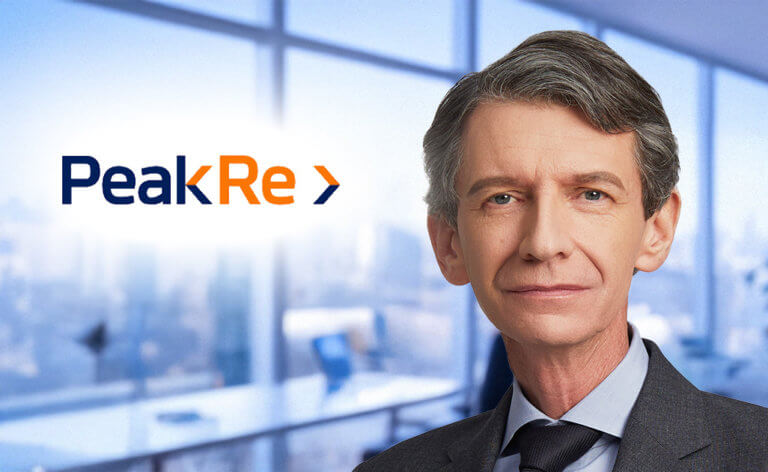Hurricane Milton, German floods to drive rates up: Peak Re’s Nowakowski
November 7 2024 by Kristina Shperlik
As the reinsurance industry braces for upcoming renewals, Piotr Nowakowski, chief underwriting officer at Peak Re shares his perspectives on market trends, climate change impacts, and the company’s strategic plans in the Asia Pacific region.
The impact of events like Hurricane Milton and the floods in Germany/Central Europe is expected to drive rates up on affected businesses, particularly in cat-prone areas, Nowakowski told InsuranceAsia News (IAN).
There could be changes in policy wordings or specific negotiations around secondary perils e.g. hail in the coming renewals, Nowakowski said, as those perils remain one of the most significant concerns, particularly in Asia (Australia, recently Japan) and Europe.
However, the situation varies as “each and every market is different”. In Japan, for instance, the cat loss history has been favourable for the last few years, which might exert pressure to reduce rates unless there is significant growth in exposure.
Nowakowski pointed out that while the frequency of events may not be increasing, their severity certainly is, adding that secondary perils “come to the front of the stage”.
Peak Re is licensing major vendor models for nat cat and is doing its own assumptions and nat cat modelling. The company has also hired a meteorologist to integrate climate change considerations into their pricing and underwriting strategies.
The retro market is likely to remain stable in 2025, with some potential for light softening as it is “always a little bit ahead of the reinsurance market.
“There is capacity on the retro market, and the capacity needs to be efficiently allocated. The business we are writing from the property side should be profitable to cover the cost of the retro we are buying for our portfolio,” Nowakowski said.
Civil commotion and political instability are additional factors that reinsurers must consider as the political and social environment in each country can significantly impact risk assessments.
“We cannot apply the same standard for each market,” Nowakowski explained, citing examples of unexpected riots in some countries. In Asia, some markets are seen as more problematic due to political instability.
Despite these challenges, Peak Re remains committed to expanding its presence and deepening its relationships with clients. In some developing markets, Peak Re is taking a cautious approach, focusing on building deep relationships before expanding its business.
“There is capacity on the retro market, and the capacity needs to be efficiently allocated. The business we are writing from the property side should be profitable to cover the cost of the retro we are buying from our portfolio.” Piotr Nowakowski, Peak Re
“The priority for us should be to increase the relationship with existing clients… and then obviously new clients from existing markets,” Nowakowski said.
“There is no rush to write the business… we like to take our time to analyse it, to establish deeper relationships,” he explained.
The company is also keen on diversifying its portfolio, balancing property and non-property business to ensure a holistic approach of portfolio management.
“We like to write property and non-property business because this is also giving us an opportunity to have global relationships with clients,” Nowakowski explained.
In more mature markets, the focus is on maintaining a balance between proportional and non-proportional business as while in markets like Australia and New Zealand, the vast majority is non-proportional business, in developing markets proportional business still plays a significant role.
“Placing proportional business is also implemented from the capital point of view and the reinsurers are providers of capital/capacity. Non-proportional business needs more capacity than proportional business in some markets,” Nowakowski said.
Peak Re is exploring structured solutions and alternative risk transfer mechanisms as complementary products for existing clients or a way to develop business with potential clients with a special team for structured solutions working very closely with colleagues from life and from P&C.
The reinsurer is also strengthening its actuarial pricing team to focus on specific type of risk e.g. cyber risks and is licensing cyber models for data accumulation.
“Cyber is very interesting, and we have already a portfolio covering mainly Europe and the US,” Nowakowski said, noting that discussions in some Asian markets are still limited but there is significant potential for growth.
-
Heavy rain, strong winds brings state of emergency, disruptions to central New Zealand
- February 16
States of emergancy have been declared in five districts and 30,000 properties have reported power outages as a result of the extreme weather on the North Island.
-
Heavy rain, strong winds brings state of emergency, disruptions to central New Zealand
- February 16
States of emergancy have been declared in five districts and 30,000 properties have reported power outages as a result of the extreme weather on the North Island.
-
IAG’s net profit falls 35% in H1 following Queensland hailstorms
- February 12
IAG's underlying underwriting results remained resilient across the first half of FY26, despite losses from the hailstorms in Queensland.
-
ARPC declares end of ex-Tropical Cyclone Mitchell
- February 11
It is the seventh of Australia’s storm season after tropical cyclones Fina, Grant, Hayley, Jenna, Koji and Luana.
-
QBE | Elevating customer experience, humanising claims: QBE Asia’s ‘Solutions in a Box’
Vastly improving turnaround times and personalising service delivery, QBE Asia’s award-winning, end-to-end bundled claims solutions is a game-changer for the insurance industry.
-
Beazley | What does cyber protection look like from day 1 to day 600 and beyond?
Cybersecurity is no longer just an IT concern, but a governance issue that belongs on the boardroom agenda.
-
Sedgwick | Preparing for the next storm
Insurance industry needs to recalibrate, invest in innovation and strengthen systems, talent and data practices.
-
Peak Re | From climate modelling to market opportunity: Forging a new clarity on Southeast Asia’s climate risk
Southeast Asia's protection gap: a crisis of clarity, not just capital

